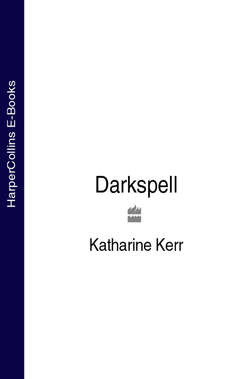Читать книгу Darkspell - Katharine Kerr - Страница 7
ОглавлениеPRONUNCIATION NOTES
The language spoken in Deverry, which we might well call Neo-Gaulish, is a member of the P-Celtic family. Although closely related to Welsh, Cornish, and Breton, it is by no means identical to any of these actual languages and should never be taken as such, just as the Deverrians themselves are quite different from any historical Celts.
VOWELS are divided by Deverry scribes into two classes: noble and common. Nobles have two pronunciations; commons, one.
A as in father when long; a shorter version of the same sound, as in far, when short.
O as in bone when long; as in pot when short.
W as the oo in spook when long; as in roof when short.
Y as the i in machine when long; as the e in butter when short.
E as in pen.
I as in pin.
U as in pun.
Vowels are generally long in stressed syllables; short in unstressed. Y is the primary exception to this rule. When it appears as the last letter of a word, it is always long whether that syllable is stressed or not.
DIPHTHONGS generally have one consistent pronunciation.
AE as the a in mane.
AI as in aisle.
AU as the ow in how.
EO as a combination of eh and oh.
EW as in Welsh, a combination of eh and oe.
IE as in pier.
OE as the oy in boy.
UI as the North Welsh wy, a combination of oo and ee.
Note that OI is never a diphthong, but is two distinct sounds, as in carnoic (KAR-noh-ik).
CONSONANTS are mostly the same as in English, with these exceptions:
C is always hard as in cat.
G is always hard as in get.
DD is the voiced th as in breathe, but the voicing is more pronounced than in English. It is opposed to TH, the unvoiced sound as in thin or breath. (This is the sound that the Greeks called the Celtic tau.)
R is heavily rolled.
RH is a voiceless R, approximately pronounced as if it were spelled hr in Deverry proper. In Eldidd the sound is fast becoming indistinguishable from R.
DW, GW, and TW are single sounds, as in Gwendolen or twit.
Y is never a consonant.
I before a vowel at the beginning of a word is consonantal, as it is in the plural ending -ion, pronounced yawn.
DOUBLED CONSONANTS are both sounded clearly, unlike in English. Note, however, that DD is a single letter, not a doubled consonant.
ACCENT is generally on the penultimate syllable, but compound words and place names are often an exception to this rule.
On the whole, I have transcribed both Elvish and Bardekian names and words according to the preceding system of orthography, which is quite adequate to the Bardekian, at least. As for Elvish, in a work of this sort it would be both confusing and overly pedantic to use the full apparatus by which scholars try to represent this most subtle and nuanced of tongues. To the average human ear, for instance, distinctions such as those between A, *A, and Å are lost in the hearing. Why, then, should we try to distinguish them in print?
If the reader feels that I belabor this point, the reader should be apprised that a certain Elvish scholar of Elvish has already sniped at this simplified usage, both in private circles and the more public medium of the Aberwyn papers. One hopes that having relieved himself of his bile, he will now find more suitable activities for his leisure hours.
